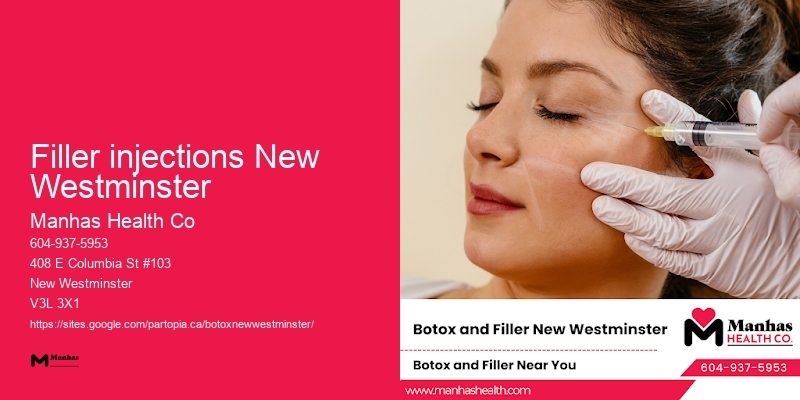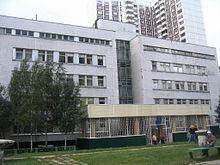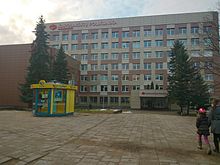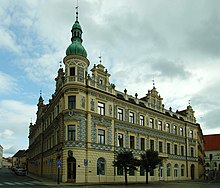

This approach ensures any concerns you have post-treatment are addressed promptly and effectively. Manhas Health Co's commitment to advanced techniques also means they're constantly evolving.
Understanding your unique beauty needs, we offer tailored cosmetic solutions designed specifically for you. We make sure you're well-informed about aftercare and any necessary steps to maintain your results. You'll find our approach to be uniquely tailored to you. You're likely seeking a provider that not only understands the nuances of aesthetic enhancements but also prioritizes your unique needs and safety. PrabotulinumtoxinA-xvfs
Whether you're looking to smooth out fine lines, restore volume to your face, or enhance your natural features, we've got you covered. From the moment you walk in, you're greeted with warmth and professionalism, making you feel comfortable and confident in your choice. With the Manhas Health Philosophy, you're not just improving how you look; you're investing in how you feel.
The area now known as New Westminster was originally inhabited by Kwantlen First Nation The discovery of gold in BC and the arrival of gold seekers from the south prompted fear amongst the settlers that Americans may invade to take over this land.
It's ideal for those seeking subtle, long-lasting results. As we explore the depth of their commitment to excellence and the ways they've transformed patient care, you'll see why their name is synonymous with trust and quality in the cosmetic industry. Xeomin Moreover, these treatments are customizable. It's not just about looking younger; it's about feeling in tune with oneself.
Their team of experienced professionals is skilled in administering a variety of treatments, including Botox for dynamic wrinkles and dermal fillers for volume loss and sculpting. Each member is carefully selected based on their credentials, ongoing education, and commitment to excellence in patient care. This step ensures that the services you're considering aren't only suitable but also safe for you.
Through the eyes of our clients, you'll witness the transformative power of expert cosmetic injections, showcasing dramatic yet natural-looking changes that truly reflect their desired outcomes. At Manhas Health Co., your aesthetic journey is tailored to fit your unique desires and needs, ensuring a personalized experience from start to finish. Botulinum toxin type b Exploring the advanced treatment options at Manhas Health Co., you'll discover a world of innovative cosmetic solutions designed to meet your unique needs.
You'll know exactly what to expect during the procedure, the type of care you'll need afterward, and how to maintain your new look for as long as possible. That's where Manhas Health Co. Type E botulinum toxin steps in, becoming the go-to clinic for cosmetic injections in Filler injections New Westminster. At Manhas Health Co., you're guaranteed to find the right injection to achieve your beauty aspirations safely and effectively.


Our team is constantly training on the newest devices and techniques. She's now more outgoing and assertive at work. Whether you're aiming to rejuvenate your skin, enhance your features, or simply maintain a youthful appearance, Manhas Health Co. offers a range of cutting-edge treatments that stand out in Filler injections New Westminster. Every tool and surface is meticulously cleaned and disinfected between appointments, reducing the risk of infection.
Just as the legendary Fountain of Youth promised eternal vitality, Filler injections New Westminster's Manhas Health Co. offers a modern-day elixir in the form of safe and effective cosmetic injection services. This knowledge allows us to deliver results that not only look natural immediately but also age gracefully with you. Manhas Health Co offers a wide range of cosmetic injections, catering to various aesthetic needs and desires.
It's not just about enhancing beauty; it's about doing it with the utmost accuracy and safety. It's here that the foundation for your unique treatment plan is laid, factoring in your skin type, age, facial structure, and the specific cosmetic injections that will best achieve your goals. At Manhas Health Co., our team of certified medical professionals specializes in cosmetic injections, ensuring you receive the highest standard of care.
You're witnessing a shift in perception, where taking control of your appearance is seen as empowering, not vain.
Clients rave about their transformative experiences at Manhas Health Co., highlighting the clinic's exceptional service and results. At Manhas Health Co., we're at the forefront of integrating cutting-edge technology into our cosmetic injection treatments. They often mention the visible improvements in their appearance, which boosts their confidence and overall well-being. Applying a cold compress can help alleviate any immediate swelling, but be sure not to apply direct pressure.
We're not just any team; each member brings a wealth of experience and a keen eye for detail, setting us apart in Filler injections New Westminster. Imagine walking into a clinic where the air is tinged with a sense of innovation and trust, a place where Manhas Health Co. has redefined the landscape of cosmetic injections in Filler injections New Westminster. When you step into their clinic, you're not just entering a world of beauty enhancements; you're embracing an experience that prioritizes your well-being and satisfaction.
They're not just offering treatments; they're providing personalized experiences that align with individual aesthetic goals.


You've likely noticed the buzz around cosmetic injections and the demand for personalized, less invasive options that promise minimal downtime and natural-looking results. You'll see immediate results without the downtime associated with surgical procedures. Discover what sets them apart and how booking your consultation could be the first step towards embracing a more confident you.
You're in expert hands, and we're here to guide you through every step of your aesthetic journey with professionalism, empathy, and unmatched expertise. By combining advanced treatment options with a keen focus on personalized patient experiences, they ensure each visit is as unique as the individuals walking through their doors.


A clinic (or outpatient clinic or ambulatory care clinic) is a health facility that is primarily focused on the care of outpatients. Clinics can be privately operated or publicly managed and funded. They typically cover the primary care needs of populations in local communities, in contrast to larger hospitals which offer more specialized treatments and admit inpatients for overnight stays.
Most commonly, the English word clinic refers to a general practice, run by one or more general practitioners offering small therapeutic treatments, but it can also mean a specialist clinic. Some clinics retain the name "clinic" even while growing into institutions as large as major hospitals or becoming associated with a hospital or medical school.

The word clinic derives from Ancient Greek κλίνειν klinein meaning to slope, lean or recline. Hence κλίνη klinē is a couch or bed and κλινικός klinikos is a physician who visits his patients in their beds.[1] In Latin, this became clīnicus.[2][3]
An early use of the word clinic was "one who receives baptism on a sick bed".[4]

Clinics are often associated with a general medical practice run by one or several general practitioners. Other types of clinics are run by the type of specialist associated with that type: physical therapy clinics by physiotherapists and psychology clinics by clinical psychologists, and so on for each health profession. (This can even hold true for certain services outside the medical field: for example, legal clinics are run by lawyers.)
Some clinics are operated in-house by employers, government organizations, or hospitals, and some clinical services are outsourced to private corporations which specialize in providing health services. In China, for example, owners of such clinics do not have formal medical education. There were 659,596 village clinics in China in 2011.[5]
Health care in India, China, Russia and Africa is provided to those regions' vast rural areas by mobile health clinics or roadside dispensaries, some of which integrate traditional medicine. In India these traditional clinics provide ayurvedic medicine and unani herbal medical practice. In each of these countries, traditional medicine tends to be a hereditary practice.

The function of clinics differs from country to country. For instance, a local general practice run by a single general practitioner provides primary health care and is usually run as a for-profit business by the owner, whereas a government-run specialist clinic may provide subsidized or specialized[dubious – discuss] health care.
Some clinics serve as a place for people with injuries or illnesses to be seen by a triage nurse or other health worker. In these clinics, the injury or illness may not be serious enough to require a visit to an emergency room (ER), but the person can be transferred to one if needed.
Treatment at these clinics is often less expensive than it would be at a casualty department. Also, unlike an ER these clinics are often not open on a 24/7/365 basis. They sometimes have access to diagnostic equipment such as X-ray machines, especially if the clinic is part of a larger facility. Doctors at such clinics can often refer patients to specialists if the need arises.[6]

Large outpatient clinics vary in size, but can be as large as hospitals.
Typical large outpatient clinics house general medical practitioners (GPs) such as doctors and nurses to provide ambulatory care and some acute care services but lack the major surgical and pre- and post-operative care facilities commonly associated with hospitals.

Besides GPs, if a clinic is a polyclinic, it can house outpatient departments of some medical specialties, such as gynecology, dermatology, ophthalmology, otolaryngology, neurology, pulmonology, cardiology, and endocrinology. In some university cities, polyclinics contain outpatient departments for the entire teaching hospital in one building.

Large outpatient clinics are a common type of healthcare facility in many countries, including France, Germany (long tradition), Switzerland, and most of the countries of Central and Eastern Europe (often using a mixed Soviet-German model), as well as in former Soviet republics such as Russia and Ukraine;[7] and in many countries across Asia and Africa.[8]
In Europe, especially in the Central and Eastern Europe, bigger outpatient health centers, commonly in cities and towns, are called policlinics (derived from the word polis, not from poly-).
Recent[when?] Russian governments have attempted to replace the policlinic model introduced during Soviet times with a more western model. However, this has failed.[9]
In the Czech Republic, many policlinics were privatized or leasehold and decentralized in the post-communist era: some of them are just lessors and coordinators of a healthcare provided by private doctor's offices in the policlinic building.[10]
India has also set up huge numbers of polyclinics for former defense personnel. The network envisages 426 polyclinics in 343 districts of the country which will benefit about 33 lakh (3.3 million) ex-servicemen residing in remote and far-flung areas.[11]
Policlinics are also the backbone of Cuba's primary care system and have been credited with a role in improving that nation's health indicators.[12]


Providing health services through mobile clinics provides accessible healthcare services to these remote areas that have yet to make their way in the politicized space. For example, mobile clinics have proved helpful in dealing with new settlement patterns in Costa Rica. Before foreign aid organizations or the state government became involved in healthcare, Costa Rica's people managed their own health maintenance and protection.[13] People relied on various socio-cultural adaptations and remedies to prevent illnesses, such as personal hygiene and settlement patterns.[13] When new settlements that sprang up along the coast became "artificial" communities, and due to lack of traditional home healing practices here, alternative methods such as mobile clinics had to be implemented in these communities for the protection and prevention of diseases.[13]
A study done in rural Namibia revealed the health changes of orphans, vulnerable children and non-vulnerable children (OVC) visiting a mobile clinic where health facilities are far from the remote villages.[14] Over 6 months, information on immunization status, diagnosis of anemia, skin and intestinal disorders, nutrition, dental disorders was collected and showed that visits to mobile clinics improved the overall health of children that visited regularly. It concluded that specified "planning of these programs in areas with similarly identified barriers may help correct the health disparities among Namibian OVC and could be a first step in improving child morbidity and mortality in difficult-to-reach rural areas."[14]

Food supplementation in the context of routine mobile clinic visits also shows to have improved the nutritional status of children, and it needs further exploration as a way to reduce childhood malnutrition in resource-scarce areas. A cross-sectional study focussed on comparing acute and chronic undernutrition rates prior to and after a food-supplementation program as an adjunct to routine health care for children of migrant workers residing in rural communities in the Dominican Republic.[15] Rates of chronic undernutrition decreased from 33% to 18% after the initiation of the food-supplementation program and shows that the community members attending the mobile clinics are not just passively receiving the information but are incorporating it and helping keep their children nourished.[15]

There are many different types of clinics providing outpatient services. Such clinics may be public (government-funded) or private medical practices.
cite book: |website= ignored (help)
Cosmetic may refer to:
This article needs additional citations for verification. (March 2012) |

A facial is a family of skin care treatments for the face, including steam, exfoliation (physical and chemical), extraction, creams, lotions, facial masks, peels, and massage. They are normally performed in beauty salons, but are also a common spa treatment. They are used for general skin health as well as for specific skin conditions. Types of facials include European facial,[1] LED light therapy facials, hydrafacials and mini-facials.
There are different kinds of masks (e.g., clay, cactus, cucumber) for different purposes: deep-cleansing, by penetrating the pores; healing acne scars or hyper-pigmentation; brightening, for a gradual illumination of the skin tone. Facial masks also help with anti-aging, acne, crows feet, under eye bags, sagging lids, dark circles, puffiness,[2] and more. Some masks are designed to dry or solidify on the face, almost like plaster; others just remain wet. The green face mask is very essential and benefited.
Masks are removed by either rinsing the face with water, wiping off with a damp cloth, or peeling off of the face. Duration for wearing a mask varies with the type of mask, and manufacturer's usage instructions. The time can range from a few minutes to overnight. Those with sensitive skin are advised to first test out the mask on a small portion of the skin, in order to check for any irritations. Some facial masks are not suited to frequent use. A glycolic mask should not be used more frequently than once a month to avoid the risk of burning the skin.
Masks can be found anywhere from drugstores to department stores and can vary in consistency and form. Setting masks include: clay, which is a thicker consistency, and will draw out impurities (and sometimes, natural oils, too) from the pores; a cream, which stays damp to hydrate the skin; sheet-style, in which a paper mask is dampened with liquid to tone and moisturize the skin; and lastly, a hybrid/clay and cream form that includes small beads for removing dead surface skin cells. Non-setting facial masks include warm oil and paraffin wax masks. These different forms are made to suit different skin types (e.g., oily or dry), and different skincare goals or needs (e.g., moisturizing, cleansing, exfoliating). Clay and mud masks suit oily and some "combination" skin types,[3] while cream-based masks tend to suit dry and sensitive skin types. There are also peel-off masks which are used to remove thin layers of dead skin cells and dirt.[4]
Manhas Health Co. has been providing cosmetic injections for several years, boasting a high patient satisfaction rate. You'll find their experience and positive feedback reassuring when considering their services for your aesthetic needs.
If you're not happy with your initial results, Manhas Health Co. offers touch-ups or corrections. They aim to ensure you're satisfied, but it's best to check their specific policy for any conditions or fees involved.
Yes, Manhas Health Co. utilizes exclusive and proprietary injection techniques that you won't find at other clinics, giving you a unique advantage in achieving your aesthetic goals with a highly personalized approach to cosmetic enhancement.